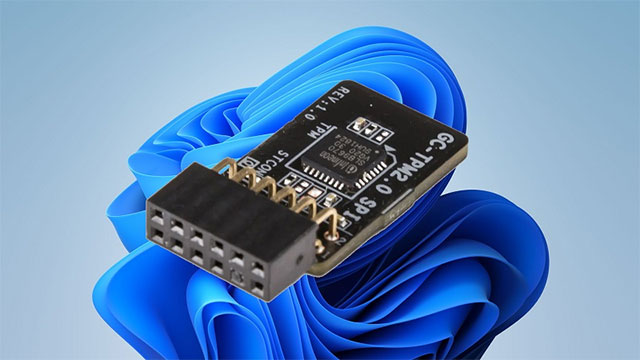Microsoft: TPM 2.0 in Windows 11 is mandatory and 'non-negotiable'
When Microsoft announced Windows 11 more than three years ago, it was immediately met with controversy. Not only because of its unconventional interface, but also because of its high hardware requirements, which meant that many systems still might not be able to run Windows 11 properly. One of those requirements was TPM 2.0, and Microsoft recently reminded everyone why this security chip is so important.
If you don't know, TPM 2.0 can be a dedicated hardware chip or firmware built into your PC's motherboard. TPM stands for Trusted Platform Module, which is the component responsible for storing encryption keys, passwords, certificates, and other sensitive data.

Unlike the previously popular TPM 1.2, the new version 2.0 works with additional features like Secure Boot (another Windows 11 requirement) and Windows Hello. However, Microsoft admits that implementing it requires 'a fundamental change to the system,' in other words, buying new hardware:
While implementation may require changes to your organization, TPM 2.0 represents an important step toward more effectively combating today's complex security challenges.
As for the actual benefits of using TPM 2.0, Microsoft cites better encryption standards, which separate encryption and storage processes from the main processor, and better integration with additional Windows 11 security features like Credential Guard and Windows Hello for Business. TPM 2.0 is also used for BitLocker encryption keys (with Windows 11 version 24H2, BitLocker is enabled by default for all users), Secure Boot, which ensures the operating system you try to boot into hasn't been tampered with, and multi-factor authentication.
Microsoft reaffirms that TPM 2.0 is an essential tool to combat today's security risks and keep your data safe in the future. The company even calls Trusted Platform Module 2.0 a "non-negotiable standard" for the future of Windows, so don't expect Microsoft to lower Windows 11's hardware requirements just to get more users to upgrade their systems from Windows 10 to 11.
In short, TPM 2.0 is more than just a recommendation—it's essential to maintaining a secure Windows environment and adapting to future gadgets.
You should read it
- ★ What is Microsoft's Pluton Security Processor? How does it work?
- ★ How does the security chip on smartphones work?
- ★ Vietnamese enterprises announced security chips with operating systems smaller than Windows 10 200,000 times
- ★ How to know if your Windows computer is affected by Meltdown and Specter?
- ★ Overview of vulnerabilities on Intel, AMD, ARM chips: Meltdown and Specter